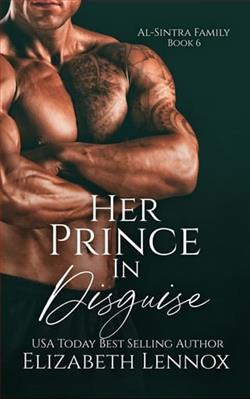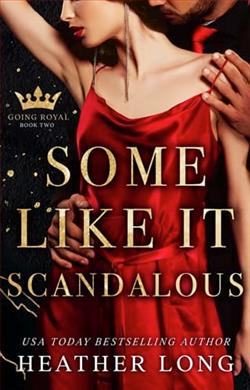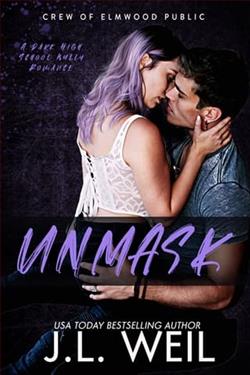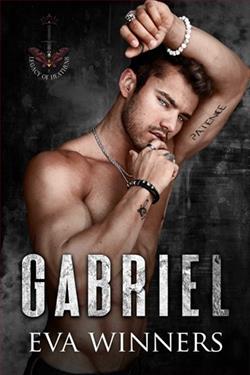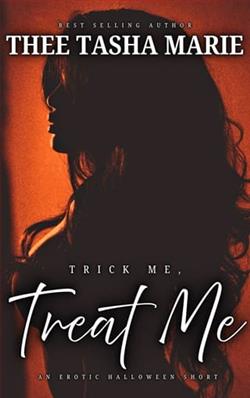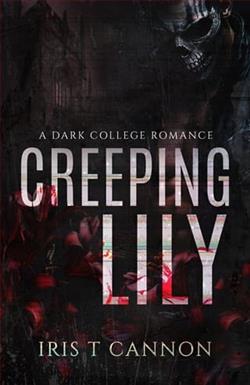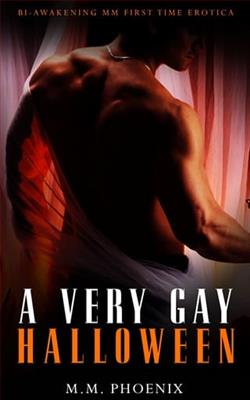Page 29 of Jailer to the Death God
“Enjoying the distress of the woman who enslaved me for a year?” There’s a savage, almost desperate edge to his tone. He takes another bite of apple and chews messily, humming his pleasure at the taste. “Oh yes. I’m enjoying it immensely.”
“You’re a monster.”
“To a human it might seem so. Are you going to strike me with those, little Queen?” He nods to my white-knuckled hands.
I force my fingers to uncurl. Now my palms are flat against his chest.
Right before I remove them, I feel the faint quickening of his heartbeat.
Or perhaps I imagined it.
He nonchalantly takes another bite of apple, keeping his eyes averted from mine.
“Come on,” I snap. “We must heal the sick here in the palace before we go into the city.”
It’s only once we’re halfway back to the royal wing that I realize he put on his jade-green skin and horns just for me, right when I left the Council Chamber. I’m not sure whether he was trying to terrify or impress me.
Such a confusing deity.
For the next three days Arawn and I work ceaselessly, going through the city section by section. To save time, we send town criers and guards ahead of us so the residents of each building can bring their sick to the street, or at the very least to a front room where it’s quicker to access them. With so many to heal, every minute counts.
At dawn, noon, and dusk, Arawn and I go to one of the main squares of the city to heal sick children. Parents can bring little ones there for priority treatment, since children die from the plague more quickly than adults.
Arawn isn’t healing anyone, so the beneficial effects of his presence aren’t immediately noticeable. The people he spares still have to suffer through the remainder of the illness. And sometimes he encounters people whom he deems unworthy. Those individuals die shortly after he leaves, and since their inner sins are not always readily apparent or known to their loved ones, the name of “Vaughn the Healer” is a curse in those households.
The food crisis is worsening, as is the unrest in the city. The relatives of the people Arawn has killed hate him, and by extension, me as well. But the parents whose children have miraculously recovered have nothing but praise for me and the foreign healer.
I haven’t met with the Council again; I’ve refused a curt note they sent me, wanting to discuss the new healer.
I’ve also been neglecting my throne room hours in favor of traveling around the city with Arawn. Since the supplicants can’t meet me at the palace, they follow our carriage—some of them carrying sick loved ones and pleading for help, others shouting cruel names at the man they believe to be “Vaughn of Terelaus.” I’ve had to increase the number of mounted guards traveling with us each day. It puts a strain on the dwindling resources of the royal guard, but I have no choice.
Late on the third day, Farley halts our carriage in a new section of the city—a few streets lined with tenement buildings, near the north wall.
Two guards are riding in the carriage with the death god and I. When our vehicle halts, one guard leans forward, laying a hand on the carriage door.
“A moment, Your Majesty, while we clear you a path,” he says.
Through the padded walls of the coach, I can hear the clamor of voices, some shrill, crying for mercy and healing—others caustic and strident, demanding the punishment of the “Death Dealer,” as some have begun to call Arawn.
My guards exit the carriage, while I wait inside with the silent god. He hasn’t spoken to me much during these three days. We’ve been starting our work in the pre-dawn chill and not returning until late at night; and when we’re in the palace, he keeps to the room across the hall, the one now assigned to him. It used to be the chamber of the queen mother—my grandmother, whom I barely remember.
A guard shouts outside the carriage, and a woman screeches back.
“Soon they’ll begin to see it,” I say, almost to myself. “The plague takes about a week to run its course in a healthy adult. The children you’ve spared are already recovering. A few more days, and more of the adults will start to get better. Then in another week or two the numbers of the sick will begin to go down. We just need a little more time, and then they’ll realize it’s working.”
Arawn gazes at me, his expression bland, tinged with faint hostility.
His apathy infuriates me. “Why do you have to kill the unworthy ones?” I snap. “That’s what people remember, you know—the ones who die immediately after you leave the house. Theyshouldthink about the people you mark to be spared, or the children who are surviving, but no—all they see is the deaths. If you could only spare a few more—”
“You’re asking me to go against my nature.” His voice rumbles through the confined space. “I won’t do that.”
I want to strike him, to kick him. I clench my fists and grit my teeth, struggling against the boiling tide of rage in my chest.
“Breathe, little Queen,” he says. “You’ve barely slept or eaten in three days. And you’ve barely allowed me to sleep or eat for three days.”
“Not that you need it,” I retort.
His eyes spark, and he leans forward. “I need it,” he grits out. “I feel my chains more distinctly when I’m working for you, when I have no time to indulge in pleasant sensations. Just because you can’t see my bonds, Highness, doesn’t mean they aren’t there. In fact—” His eyes glow a brighter green, and suddenly Icansee them—black chains laced around his limbs. They’re gone the next second, but the glow in his eyes remains, a fierce, vengeful light.








